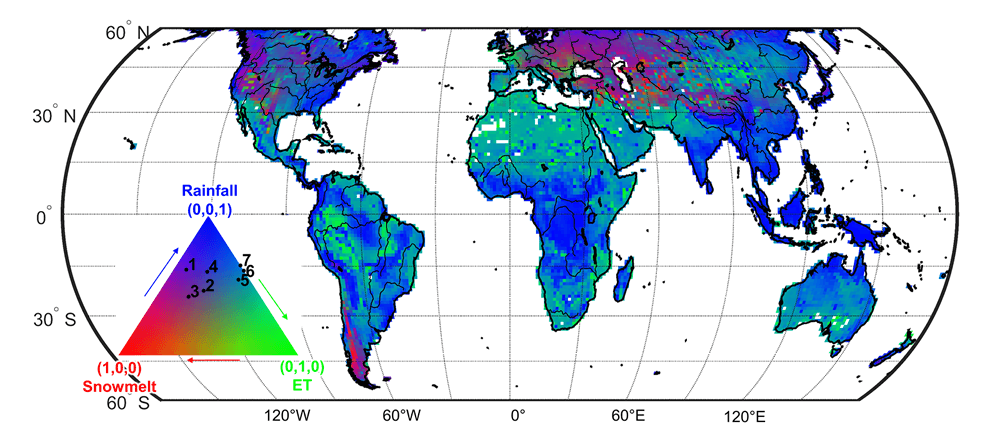Research-interests 3
Impact of climate changes on the global water resources
The study assessed the potential climate-driven impacts on terrestrial subsurface water storage changes throughout the 21st century under the business-as-usual warming scenario. As a pioneering attempt, we used a fully coupled climate model (including atmospheric, oceanic, land, and sea ice components) to investigate land water storage changes over seven vital groundwater aquifers globally in the future warmer climate.Results show that the climate-driven effects on groundwater changes do not necessarily reflect the long-term trend in precipitation; instead, the trend may result from an enhancement of evapotranspiration and reduction in snowmelt, which collectively leads to divergent responses across different aquifers. They further compare the climate-driven and anthropogenic pumping impacts. The decline in groundwater storage is mainly due to the combined results of over-pumping and climate effects; however, the contribution of pumping could easily far exceed the natural replenishment.
This study is essential for a better understanding of future changes in vital but limited water resources as well as the terrestrial water cycle. This study implied that further investigation and incorporation of future socio-economic development are necessary to develop the scenarios for future human water exploitation rates because the anthropogenic effects are highly likely to exceed the natural climate change effects over the heavy land-use change regions.

Wu et al., 2020
Impact of land-use changes on the local and regional climates
Precipitation changes under global warming
Impact of climate changes on the global water resources
Exploration of the eco-hydro-climatic system of mountain cloud-fog forests (MCFs)

